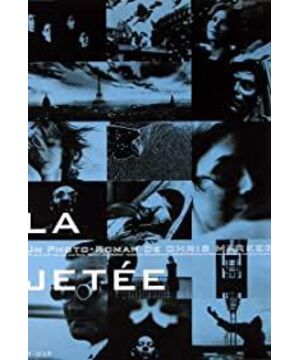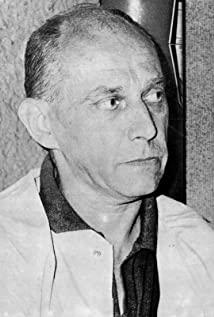The film is named "Dike", and the beginning and the end are all unfolded on the "Dike". It is not difficult to understand that this "Dike" refers to the stagnation point of memory and is a barrier to the memory of the past. Therefore, this film can be regarded as a story about the "beginning". Everywhere in the film is pregnant with the coming beginning until the end is still on a beginning. This narrative style is similar to the well-known Duras novels. "The Lover" is similar. The exploration of memory and trauma is a common topic of choice for left bankers. From the beginning of the film, the war (the third world war) and the arrival of nuclear winter are presented. The hero is a prisoner living in the ground and is forced to participate in metamorphosis. Professor's human experiments. He is on a sacred mission - to go to the past and future to help mankind find the energy to rebuild their homeland, and at the same time is doomed to annihilation in such an experiment. Obviously, the director does not take the construction of the sci-fi world as the focus of the film. The setting of such a metaphorical situation just planted a seed of fate for the following narrative, and the hero shuttles painfully through time slices. , and finally set a date with his beloved woman in a museum that showcases timeless animals. However, no time period in the film has healed the wounds in the hero's heart. He understands that he is destined to be only a pawn of God, and the future will only be shown in a vague and absurd form. Once, when he was facing the woman's slightly closed eyes under the sun, he suddenly felt the approach of death; perhaps this is the interpretation of the "sweet melancholy" of Eastern aesthetics in the eyes of Western scholars, the collision and fusion of Eastern and Western cultures in Mark. Another long documentary "No Sunshine" has been reflected in a deeper level.
The ending was tragic and expected. Between coming to the future and going back to the past, the hero chooses to go back to the past for a date that has not yet met; when he happily runs to a woman, his life comes to an end - an experiment has no right to choose Freedom, such an arrangement, seems to be closer to the pessimistic tone of "fading in brilliance" often expressed in Takeshi Kitano's films. However, in the wonderful moment that flashed in the mind of the hero in the experiment, who knows what it is? As the male protagonist himself said, "It may be the past, the future, or it may be just my own fiction." The use of this meta-narrative technique brings a certain textual spirituality to the film. The thoughts of memories travel back and forth tirelessly, and the positioning of time does not seem to be important. Clear light.
This film reflects the aesthetic characteristics of the left bank "alienation" very well, and the film constantly breaks the audience's viewing experience (eg, at the beginning, the audience will feel that this is a static documentary, and soon the "third world war" The statement also pulls people into a sci-fi atmosphere), under the treatment of defamiliarization, the whole story is shrouded in a hazy psychedelic tune, and the intermittent soundtrack is also full of experimental flavor. In short, for friends who really love literature or film art, this is a work worth recommending, not only because it is always regarded as "a milestone in science fiction movies".
View more about La Jetée reviews








